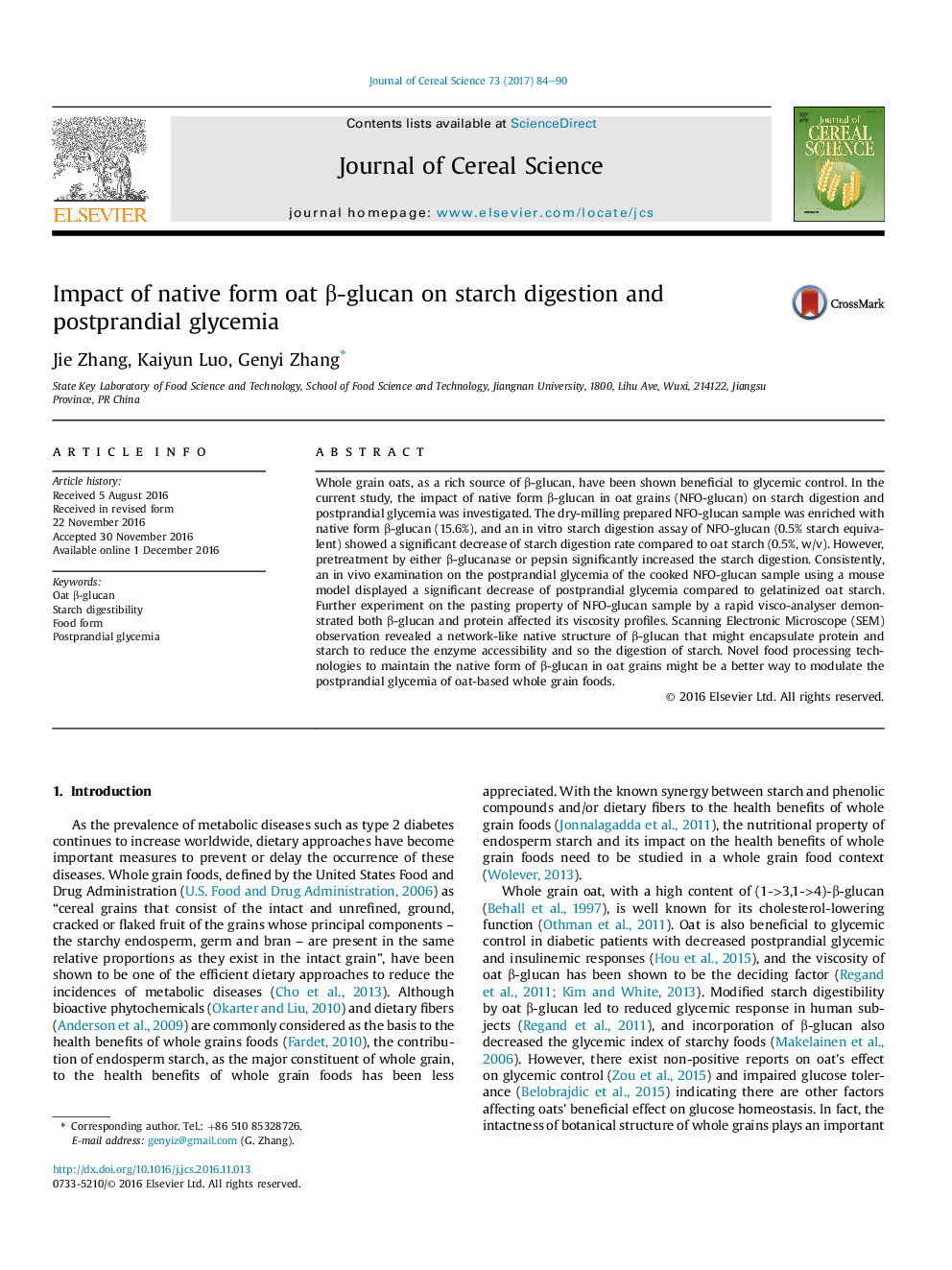| Article ID | Journal | Published Year | Pages | File Type |
|---|---|---|---|---|
| 5762490 | Journal of Cereal Science | 2017 | 7 Pages |
Abstract
Whole grain oats, as a rich source of β-glucan, have been shown beneficial to glycemic control. In the current study, the impact of native form β-glucan in oat grains (NFO-glucan) on starch digestion and postprandial glycemia was investigated. The dry-milling prepared NFO-glucan sample was enriched with native form β-glucan (15.6%), and an in vitro starch digestion assay of NFO-glucan (0.5% starch equivalent) showed a significant decrease of starch digestion rate compared to oat starch (0.5%, w/v). However, pretreatment by either β-glucanase or pepsin significantly increased the starch digestion. Consistently, an in vivo examination on the postprandial glycemia of the cooked NFO-glucan sample using a mouse model displayed a significant decrease of postprandial glycemia compared to gelatinized oat starch. Further experiment on the pasting property of NFO-glucan sample by a rapid visco-analyser demonstrated both β-glucan and protein affected its viscosity profiles. Scanning Electronic Microscope (SEM) observation revealed a network-like native structure of β-glucan that might encapsulate protein and starch to reduce the enzyme accessibility and so the digestion of starch. Novel food processing technologies to maintain the native form of β-glucan in oat grains might be a better way to modulate the postprandial glycemia of oat-based whole grain foods.
Related Topics
Life Sciences
Agricultural and Biological Sciences
Agronomy and Crop Science
Authors
Jie Zhang, Kaiyun Luo, Genyi Zhang,
